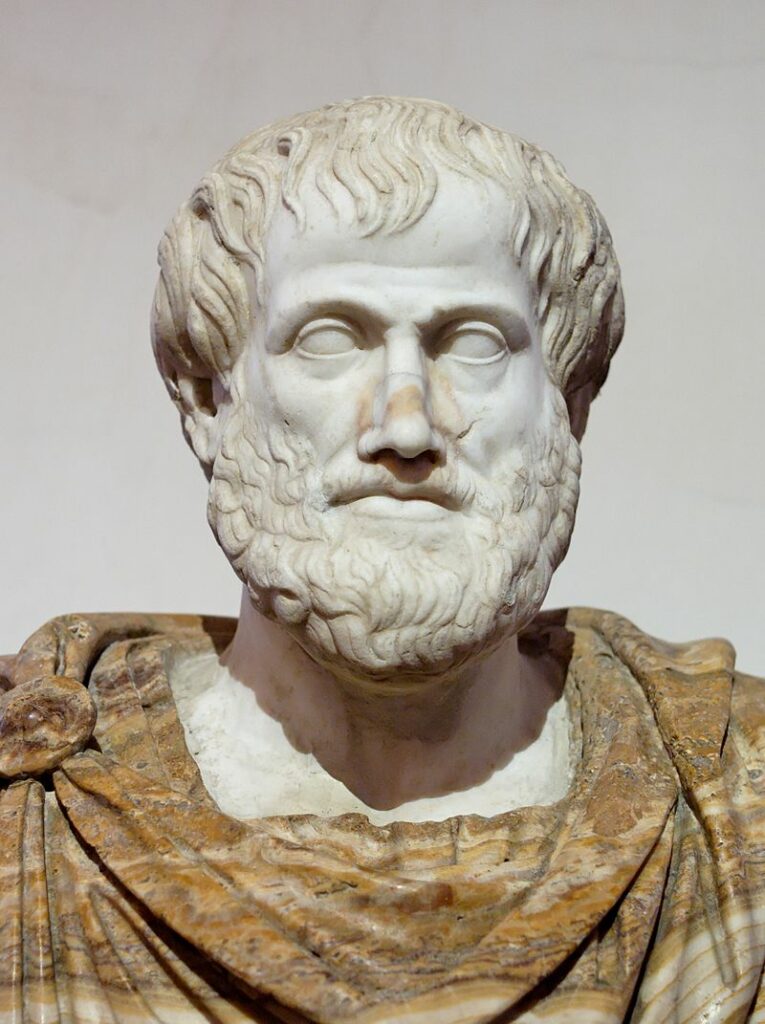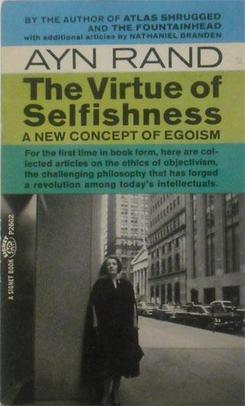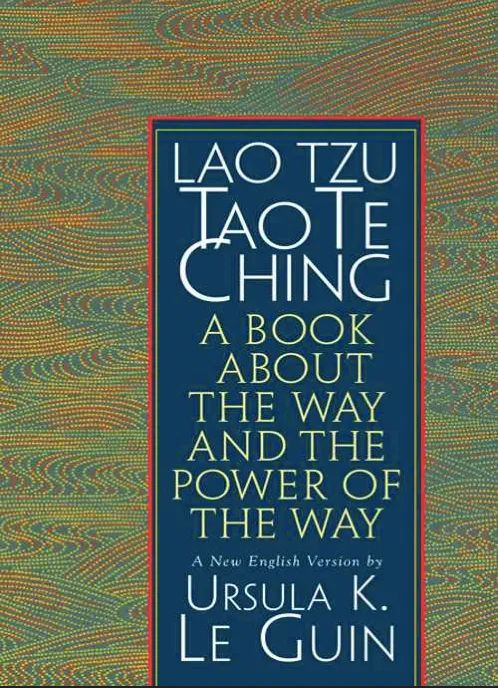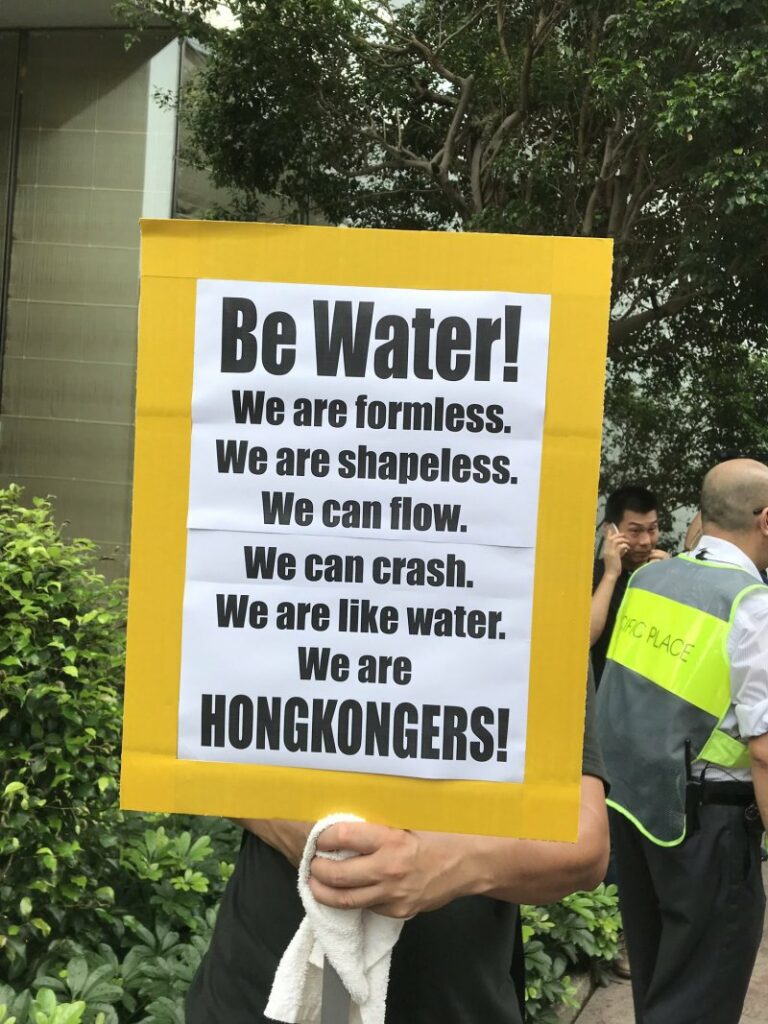Note: In 2021 I’ll publish at least one blog post per week. Here’s entry 10 of 52.

The Western philosophy I was taught in high school and undergrad, or from books sitting on the shelves of my family’s house, typically presented happiness as something a person achieves once they laboriously bring multi-step efforts to a successful conclusion. This viewpoint is commonly expressed in average conversations about goals. If a person wants to become happy, for example, they might hear that they should take up exercise. The concept is presented as if they need to add something to their usual routines. With the flavor of the stress-inducing Protestant work ethic, exercise and happiness are made to seem a struggle: happiness-seekers should whip themselves into shape, and if they fail, the lack of joy is their fault. But what if being happy is instead about removing, about subtracting, the multitudinous problems that have piled up onto a person across the decades, the various vampiric leeches sucking away energy from adults who otherwise would be automatically — in their default or natural state — going about completing worthwhile, thrilling tasks on the regular, enthusiastically and with curiosity, like a toddler exploring a beach, running around saying, “What’s that? What’s that?” and eager to make a sandcastle.
I associate the It’s the destination, not the journey position with the ancient philosopher Aristotle. He, and much of subsequent Western philosophy, argues in ethics tracts that people ultimately seek the summum bonum of happiness (or flourishing, or thriving, if you prefer those words and perhaps some no true Scotsman). Summum bonum is a Latin phrase meaning “the greatest/highest good.”
In the Nicomachean Ethics, written around 340 BC, Aristotle argues for the destination over the journey. He writes:
Every art and every investigation, and likewise every practical pursuit or undertaking, seems to aim at some good: hence it has been well said that the Good is That at which all things aim. […] there are numerous pursuits and arts and sciences, it follows that their ends are correspondingly numerous: for instance, the end of the science of medicine is health, that of the art of shipbuilding a vessel, that of strategy victory, that of domestic economy wealth […] If therefore among the ends at which our actions aim there be one which we will for its own sake, while we will the others only for the sake of this, and if we do not choose everything for the sake of something else (which would obviously result in a process ad infinitum, so that all desire would be futile and vain), it is clear that this one ultimate End must be the Good, and indeed the Supreme Good. Will not then a knowledge of this Supreme Good be also of great practical importance for the conduct of life? Will it not better enable us to attain our proper object, like archers having a target to aim at?

For Aristotle in the Nicomachean Ethics, happiness is the the target humanity aims at. For instance, people might affix a mast to wood, for the sake of something else: making a finished vessel. Affixing the mast to wood is just a lesser bonum, relative to the greater bonum (happiness) that the vessel-builders are marching their way toward. Vessel done, they’ll use their finished ship for some third purpose, say sailing to another country. At the new country, it’s time for a fourth purpose, then a fifth, then a sixth, and so on. The only thing they don’t seek for some subsequent purpose is happiness itself, and thus for Aristotle in the Nicomachean Ethics, that shows happiness is each individual’s ultimate goal. Ultimate as in last in a sequence: the concluding object that a series of sweaty, hardworking steps gets you. All this is undergrad philosophy 101, which itself has the same project management, assembly line structure as Aristotle’s vision. Students don’t like smushing themselves into the too small, infantilizing desks, at the universities forcing them to install apps that vacuum up their personal information and surveil their body language for unapproved behavior, but they do it for the sake of something else: a credential (or the approval of Boomer parents, who lived during a different economic situation, when college degrees were scarce). That credential is valued for a third purpose, namely permission to serve in the trade economy of corporations and their ancillaries (or in the parents’ firms). That service leads to wages; the wages lead to television sets and Netflix subscriptions. Now they have the means to blot out the pain of having the happiness of the child on the beach stolen.
In the passage quoted above, Aristotle reveals himself when he says “all desire would be futile and vain” if “we do not choose everything for the sake of something else.” Of course people do labor to meet the needs of themselves and their networks, and rational, multi-step processes sometimes make sense in that regard as a practical matter or because people like the challenge and benefits of organizing their work. Yet exuberant people (or better put, people when they are exuberant) don’t experience life as a maze of action-steps and milestones sorted on clunky Microsoft Outlook calendars. Multiple youtube videos providing profiles of the various construction trades make it quite clear that one of the biggest reasons people go into that industry is for the simple reason that they want to be outside. They just want to be outside. That’s it. Feel the sun, feel strong hammering something, feel powerful running giant machines. But who does lack exuberance and get trapped in thought-conundrums of why do anything, when mortality / global warming / whatever will just kill us all? Depressed people do. They ask, “What’s the point?” As in, what’s the point of undertaking some particular action? Which is actually what, unfortunately, Aristotle recommends the world ask: all desire is futile and vain, he says, if whichever action in question doesn’t make sense in terms of something else. Well, guess what. Life doesn’t make sense in terms of other things. You’re here, you’re going to die, might as well enjoy it. Why? Because that’s a person’s default, automatic state. Makes as much sense to ask why a fish swims. That’s just what it does; if it doesn’t do that, it’s somehow broken. If things are going well, people are happy and want to go around doing cool stuff. It’s the sedentary, depressed, crushed-by-others, sickened by corporate pollution and other problems, condition that needs to be understood and subtracted away, removed, so that the underlying euphoria of being alive can resume.
If Aristotle truly authored another text, the Magna Moralia (written around the same period as the Nicomachean Ethics; authorship is uncertain), then he does recognize that some activities don’t fit his blueprint of do this because it leads to that, which then leads to another thing, which finally gets you happiness. In the Magna Moralia, he says at 1211b:
to the flute-player the activity and end are the same (for to play the flute is both his end and activity); but not to the art of housebuilding (for it has a different end beyond the activity)
In other words, according to Aristotle, for the flute-player and presumably other artists, just performing and creating is where it’s at, a union of activity (playing the instrument) and goal (happiness); meanwhile, building houses has as its aim some other thing (obtaining shelter, let’s say). Yet it’s quite arbitrary to divide flute-playing from housebuilding. There’s no real reason to assume a flute-player has no additional ends in mind, such as seducing someone with the flute music as a higher (more important) goal later on, or busking to gain donations the next morning (might even resent having to practice the flute to do that), or any other number of destinations the flute-playing could lead to. As for Aristotle’s portrayal of housebuilding as a utilitarian task that is justified because of some further purpose (shelter), well, consider that Winston Churchill enjoyed bricklaying as a hobby. The prime minister didn’t lay bricks as a Plan B because he was worried about suddenly being out of a job and needing a backup skill that could also escort him toward happiness. He did bricklaying for fun, same as Aristotle’s flute player (with photo-ops added). So, if flute-playing can be part of a laborious, step-by-step schema to achieve happiness, and housebuilding can be a pleasant hobby on the side — both counterexamples to the Magna Moralia presentation of the two labors — then it seems none of Aristotle’s arguments about this are particularly clear or insightful. I think what’s actually going on is that Aristotle (assuming he authored the Magna Moralia) has doubts or perhaps conflicts about his own schema. But judging from my philosophy classes and readings over the years, it’s the do this because then it’ll lead to that which then leads to this other thing and finally you get happiness, portion of Aristotle that’s really stuck with people over the centuries, regrettably. I myself tutored this Aristotle stuff approvingly for the university athletic department, teaching it to undergraduate players of women’s volleyball. Oops. They got what I was saying, but understandably couldn’t make sense of why Aristotle took the position he did.
Fast forward two and a half millennia to the noxious reactionary Ayn Rand, who endorsed much of Aristotle (“Whatever intellectual progress men have achieved rests on his achievements,” she wrote in her review of philosopher J.H. Randall’s book Aristotle). The laissez faire capitalist Rand took the Aristotle vibe that conveys a sense of having to complete task sequences — like laboring under a project manager, or an oppressed nation suffering the “rationalizing” forced economies of colonizer bureaucrats — in order to be happy, and put a somewhat simplified version of it on steroids. Her fiction, spreading her viewpoint on happiness, later flooded schools across the United States year in and year out as a result of the Ayn Rand Institute’s scholarship program, which rewards kids with money if they write winning essays on her work.

Two quotations from Rand on happiness give a concise snapshot of her stance. Both are from a 1961 essay reprinted in her 1964 nonfiction book The Virtue of Selfishness (the cover of the tattered paperback copy I read as a teen, pictured right, shows her standing in New York City with an austere expression, wearing a dollar sign brooch).
Happiness is that state of consciousness which proceeds from the achievement of one’s values.
Existentially, the activity of pursuing rational goals is the activity of maintaining one’s life; psychologically, its result, reward and concomitant is an emotional state of happiness.
Rand, in the above sentences, states that happiness is a reward following from the achievement of your values. She doesn’t present it as a default, automatic state that exists in the absence of problems. She’s pointing a finger at you, warning that you better do enough such-and-such, sweating from your brow like her character Howard Roark in a quarry, or your chances at happiness will slip away. When I was a teenager in Texas, I was reading such garbage, and it had a very negative impact on me, because I believed it, and didn’t realize how miserable I actually was, and didn’t have good roadmaps to clearing up my situation. If I were a teen and a follower of Rand’s Objectivism philosophy, and I were reading this post, I would probably complain that dispensing with assembly line sequences of rigidly planned tasks to yield, only at the end, happiness leaves people with nothing to follow but their emotions, or what Rand called “whim-worship.” I’ll respond to that argument in part two.
In escaping the Ayn Rand position, I didn’t, and still don’t, adopt the tack most take. As far as I can make out from my perspective, most people who are into this stuff, eventually reject the Rand view, and rightfully so. They grow exhausted of its unnecessary, stress-inducing hectoring about completing tasks (expressed in her fiction and newsletters and elsewhere). But sadly it seems a lot of people then settle on hiding from challenges. Don’t think too hard, don’t care too much, get a job any job, which seems to be about — in the face of overwhelming pressures and problems on all sides — staying in comfort zones, a permanent dissociation from life in general, all its mysteries and challenges and fascinations. There’s nothing wrong with ambitious goals and putting forth a lot of effort to achieve them (which sometimes makes bystanders uncomfortable, causing them to give the unsolicited advice, You know, there really is a lot of good TV lately). Rand can fuel people’s grandiosity, grandiosity that’s ultimately unhealthy, but Rand did seem, a little bit, to help me for a while as a young person to avoid the common view that all my goals should just go into the trash because vegging out is so much safer. There’s no conflict between valuing the journey and the ambition to achieve. It’s the journey not the destination, despite its poorly stated form (in which it seems to dismiss the destination altogether), helpfully provides the insight that, the day whatever accomplishment is finally achieved, the achiever will still have to do the dishes, brush their teeth, and take care of other “mundane” tasks — so if the person centers everything around their far-off goals, they’re sure to be disappointed and unhappy, but it’s possible to do both: to have big goals and enjoy the little things too. It can be both the journey and the destination.

My early twenties thankfully saw me emerging, very slowly, from these severe, perfectionist views of complicated, multi-step requirements to someday become happy (or so I hoped). The undergraduate philosophy department at TCU (where I earned my bachelor’s degree) had on faculty Spencer Wertz who just stopped by the intro 101 class for a small segment each year to introduce the very uninterested Texan students to the Tao Te Ching and its Taoist concept of wu wei. The idea of wu wei, which has various translations into English, means something like non-doing, or effortless action, or not-forcing. It’s a belief in refraining from needless effort, which still allows goals to be achieved and needs to be met. For instance, in the United States, protestors will too often form rigid, stationary lines to square off with cops and other “security” forces. The conflict is very stark: a visible separation demarcates who are the activists and who are the authorities, as they form up against each other like offensive and defensive lines in U.S. football (except standing). The protestors aim to occupy or hold their particular position. Hong Kong activists, in contrast, encourage a principle evocatively called Be Water. The Be Water idea has protestors flowing through the streets like guerrilla parkour, never staying in any single place too long, surrounding the authorities or disappearing altogether or re-emerging even, an unpredictable but dedicated river of people swirling around. (The HK-19 manual, an in-progress Google Doc in Burmese and English, promises to discuss Be Water in more detail eventually; I learned of the document from a twitter account you might consider following.)

The contrast in protest methods beautifully illustrates the difference between rigid requirements of arduous, assembly line task sequences (say, the chain of steps to get an academic degree, with the bureaucratic numbering systems that catalog different courses like points on some vaunted grid of geometry meeting economic efficiency) and wu wei. As professor Wertz talked to our classes, some students whispered to one another, mocking the elderly man and his strange Chinese phrase. The rest of the philosophy faculty participated in various off-campus events together and with students — music shows and parties, both of which featured alcohol and people bragging of their alcohol consumption, human repetition compulsions of those angry intellectual male literary writers from the first half of the 20th century, spotlighted on stages boasting of their misery. These other philosophy professors, who had more Western orientations, were all thought of highly by the majority of the students, who were eager to be picked from above for grad school. Meanwhile, as far as I could make out, Wertz kept mostly to himself. Yet here I am, more than a decade later, painting a picture of the Taoist idea he encouraged. Very wu wei of him! His teachings didn’t address happiness directly (as far as I recall), but they did contribute to my thoughts on the matter later becoming un-stuck from the Eurocentric colonizer theories of academia with its assembly line vibe that to procure happiness you need to add box-checking struggles to your life. Like gentle water, Wertz’s explanations of wu wei didn’t have an immediate impact on me, but what he said was definitely a raindrop in the storm of different ideas that would eventually help me shift from the It’s the destination, not the journey position to a perspective that values both. No longer did happiness necessarily have to be about straining toward a far-off destination; all that needless effort could be subtracted away, removed, as wu wei suggests. Happiness could be a gentler, daily experience.
In part two, I’ll describe how the writings of F.M. Alexander, Ursula K. Le Guin, Heather Marsh, and others further changed my view on happiness.


This blog post, Views of happiness: Journey versus destination, part one of two, by Douglas Lucas, is licensed under a Creative Commons Attribution-NonCommercial-ShareAlike 4.0 International License (human-readable summary of license). The license is based on a work at this URL: https://douglaslucas.com/blog/2021/03/13/happiness-views-journey-destination-1of2/. You can view the full license (the legal code aka the legalese) here. For learning more about Creative Commons, I suggest this article and the Creative Commons Frequently Asked Questions. Seeking permissions beyond the scope of this license, or want to correspond with me about this post one on one? Please email me: dal@riseup.net
 Twitter:
Twitter:
1 comment so far ↓
Thank goodness that nowadays we (unlike Aristotle and Rand) can talk about things like evolutionary neurology and the impact of culture. This way, we can understand who we are as humans in terms of how both our environments and we ourselves have shaped us across millennia–IMHO a much better lens to see ourselves than pretty questionable abstracts like the “summum bonum.” You know, like there is no reason to assume a summum bonum (or even a stable “state” of “happiness”)–we simply inherited a preference for certain kinds of goal-driven behavior because that’s how our ancestors survived. Our brains are wired to give us a hit of dopamine after a successful task completion because our ancestors got the same when they managed to kill a mammoth. Just satisfying the hunger wasn’t enough–we were more likely to survive as a species with the dopamine hit added on top.
As far as culture, I imagine Rand’s popularity is a only by-product of how our society is structured. In a society that values certain kinds of work done in certain ways to meet certain deadlines and coordinate large groups of individuals for scale of production etc., a lot of people are going to see Rand’s emphasis on happiness-through-task-completion as “true.” “I do my job well, the boss approves, I get a raise, my peers esteem me more, so now I’m happy. Makes sense!” But in reality, she’s just promoting military/corporate values–just sort of regurgitating tacit social norms back to an audience largely not yet so aware of those norms and therefore unable to push back on them.
I like how you illustrate wu-wei in terms of a social dynamic (the protestors) as opposed to an individual wondering what to do in order to be happy. Wu-wei, defined as “non-doing,” would fundamentally contradict notions of “what should I *do*?” Wu-wei would seem to suggest, “Well, you don’t even need to ask the question ‘what should I do?'” Anyway, nice blog post!!!
Leave a Comment